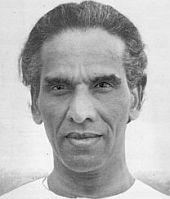 Britain's spy agency MI5 made a determined bid to 'get rid' of India's first High Commissioner to the United Kingdom, V K Krishna Menon because of his pro-Soviet leanings but failed due to strong backing from then Prime Minister Jawaharlal Nehru, according to a new book.
Britain's spy agency MI5 made a determined bid to 'get rid' of India's first High Commissioner to the United Kingdom, V K Krishna Menon because of his pro-Soviet leanings but failed due to strong backing from then Prime Minister Jawaharlal Nehru, according to a new book.
'The attempt to oust High Commissioner V K Krishna Menon failed because of the support of Prime Minister Jawaharlal Nehru,' the book titled The Defence of the Realm: The Authorised History of MI5 by Professor Christopher Andrew released on Monday said.
The matter was considered too sensitive to be recorded officially. But the book says Guy Liddel, a prominent deputy director general of MI5 had noted in his personal diary that he had told a joint intelligence committee, 'We were doing what we would to get rid of Krishna Menon'.
Menon was held in 'deep distrust not only by the British spy agencies but also by T G Sanjevi, the head of independent India's first domestic security service, the Delhi Intelligence Branch', the book says.
In 1933, the MI5 -- Britain's military intelligence agency -- had obtained a Home Office Warrant on Menon on the grounds that he was an 'important worker in the Indian revolutionary movement' with links to the Communist Party of Great Britain.
'Fears of Menon's pro-Soviet sympathies were well founded. On at least one occasion during his later political career in India, the KGB, former Soviet spy agency, paid his election expenses,' the book claimed.
'Though Menon was reported to be threatening to resign after press attacks in India, he was able to count on Nehru's support and did not do so,' the book, which is the first official history of MI5 claims.
Menon, a Labour Party Councillor in Camden, London, had founded the Indian League in 1932 to campaign for India's independence.
British intelligence could barely cope with the number of Soviet spies in the UK during the Cold War, the book said, adding that MI5 did not get to grips with Soviet espionage in Britain until the early 1970s.
Andrew said it was not until 1971, when 100 Soviet diplomats were expelled from Britain, that MI5 contained KGB and Soviet bloc intelligence activities in the UK.
The book ends 100 years of secrecy of the British counter intelligence agency during the two World wars, the Cold war and the current fight against terrorism.
Andrew was given access to all 400,000 files created by MI5 since it was founded in 1909 with no limitations on what he could publish.
Andrew said documents also showed MI5 was under pressure from the then prime minister Baroness Margaret Thatcher to help her in industrial disputes, such as the miners' strike.
Her demand was resisted because they were not genuine subversives, the book says.
'If you do not allow your history to be written, there's not just a blank where the history should be, there's disinformation, there's conspiracy theory,' Andrew told Radio 4's Today programme.




